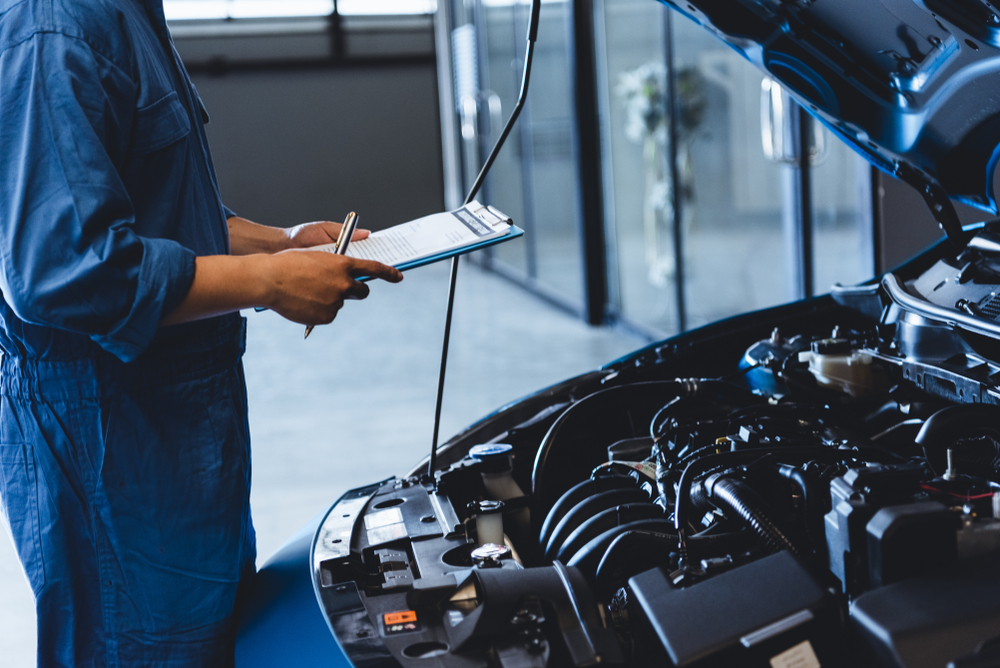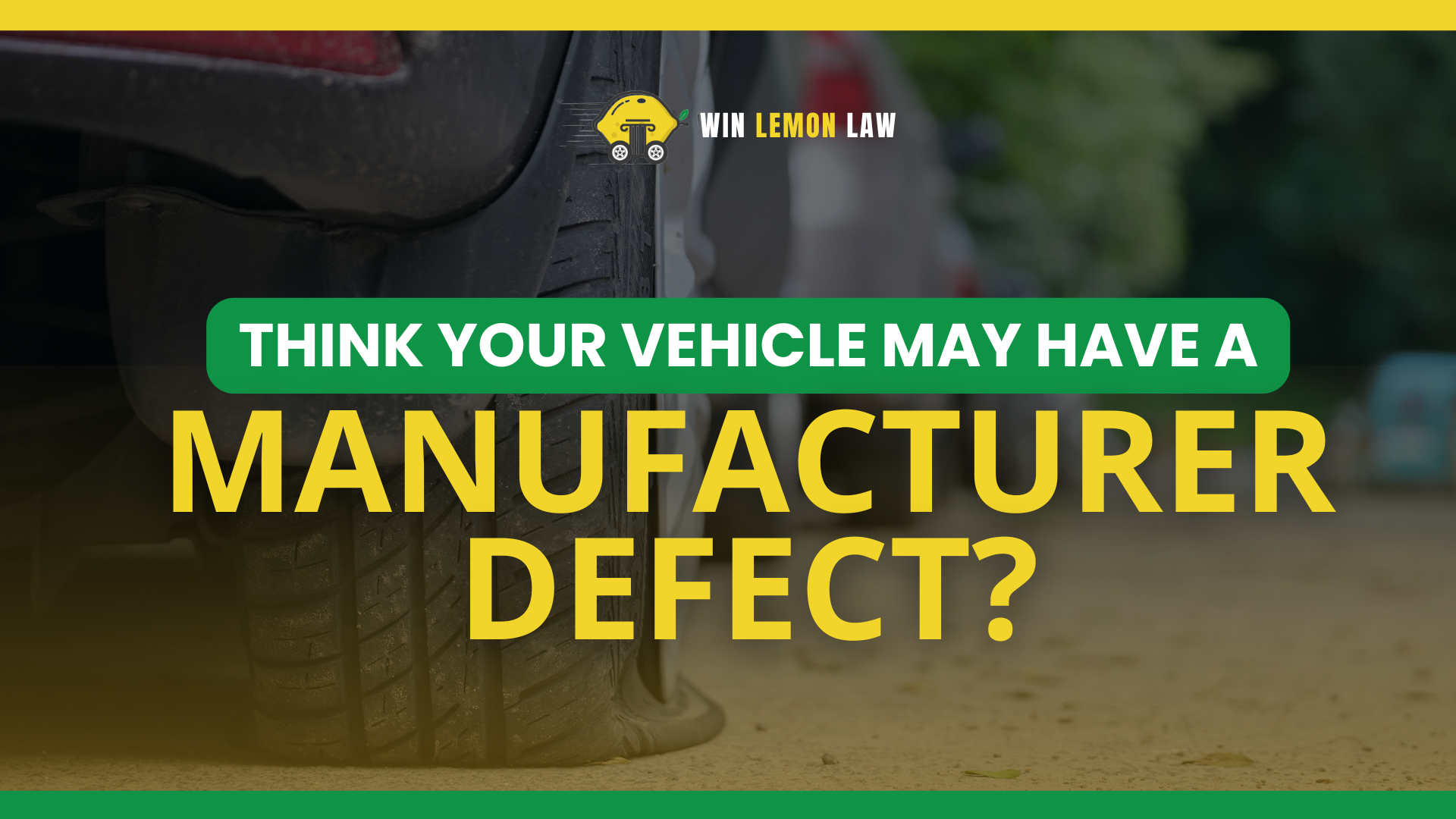Purchasing a new or used vehicle is an exciting experience, but it can quickly turn into a headache if the vehicle you bought isn’t performing as expected. Persistent issues with your car, truck, or SUV, whether mechanical, electrical, or safety-related, can leave you feeling frustrated and uncertain about what steps to take next. If you’ve found yourself returning to the dealership over and over for repairs or dealing with ongoing problems, it’s possible that your vehicle may have a manufacturer defect.
In such cases, it’s important to know that you have rights as a consumer, and there are laws in place to protect you. California’s lemon law is designed to provide relief for individuals who have unknowingly purchased or leased defective vehicles. This law allows you to seek compensation or other remedies if your vehicle’s issues cannot be resolved after a reasonable number of repair attempts.
The process can feel daunting, especially when you’re up against large automakers, but understanding the basics of lemon law is a critical first step in protecting yourself. By knowing your rights, you can make informed decisions about how to move forward and potentially resolve the situation without further frustration.
If you believe your vehicle might qualify as a lemon, it’s essential to act quickly and understand your legal options. Let’s dive into what qualifies as a lemon and how you can take the next steps to protect your investment.
What Qualifies as a Lemon Under California’s Lemon Law?
Dealing with a defective vehicle can be one of the most frustrating experiences for a car owner. Not only are you dealing with inconvenience and potential safety risks, but it can also disrupt your daily life. If you’ve been taking your car back to the dealership repeatedly for the same unresolved issue, you may be dealing with what’s commonly referred to as a “lemon.”
However, the question is: how do you know for certain that your vehicle qualifies as a lemon under California’s Lemon Law?
Understanding the Definition of a Lemon Vehicle
Under California’s Lemon Law, a vehicle qualifies as a lemon when a manufacturer or authorized dealer is unable to repair a substantial defect within a reasonable number of attempts. The key factors that determine if your vehicle meets the lemon law requirements include the nature of the defect, the number of attempts made to fix it, and how long the vehicle has been out of service.
Here’s a breakdown of what typically qualifies as a lemon:
- Safety-Related Defects
If your vehicle has a defect that could cause serious bodily injury or even death—such as malfunctioning brakes, steering problems, or airbag issues—the manufacturer is given only two attempts to resolve the issue. These defects are considered urgent and are treated more seriously due to the significant risks they pose. If the defect persists after two repair attempts, your vehicle could be classified as a lemon.
2. Non-Safety Defects
For defects that don’t pose a direct threat to your safety but still affect the vehicle’s functionality, such as problems with the engine, transmission, or electrical system, the manufacturer or dealership has up to four repair attempts to fix the issue. These defects, while not life-threatening, still interfere with your ability to use the vehicle as intended, and ongoing problems may qualify your vehicle as a lemon.
3. Extended Repair Time
Another factor that can qualify a vehicle as a lemon is the amount of time it has spent in the repair shop. If your vehicle has been out of service for 30 days or more due to warranty-covered issues, even if those days are not consecutive, it may meet the criteria for a lemon under California’s Lemon Law. This provision protects consumers who are deprived of the use of their vehicle for an extended period due to ongoing repair issues.
Warranty Coverage Matters

It’s important to note that in order for your vehicle to qualify as a lemon, the defect must occur within the manufacturer’s warranty period. This means that if your vehicle starts showing signs of a significant defect while still covered by the warranty, you may be entitled to compensation, a vehicle replacement, or a refund under California law. The key is that the defect must substantially impair the vehicle’s use, value, or safety, making it either dangerous to drive or significantly decreasing its overall reliability or performance.
This warranty coverage is designed to protect consumers from being stuck with a defective vehicle. If the vehicle’s problems emerge after the warranty expires, you may not have recourse under the Lemon Law, which is why it’s essential to act as soon as you notice recurring issues. Even if your warranty is about to expire, repairs that begin before the expiration date can still qualify, so long as the defect is reported in time.
Additionally, California’s Lemon Law may apply not only to new vehicles but also to certified pre-owned vehicles or used vehicles that are still under the original manufacturer’s warranty. If you’ve purchased a used vehicle with a warranty, you’re also entitled to the same protections under the law. Make sure to review your warranty coverage carefully and document all repair attempts, as these records will be critical in building your case.
When it comes to resolving warranty issues, time is of the essence. The earlier you bring your vehicle’s defect to light and seek repair, the better your chances of qualifying for lemon law protections.
What Types of Vehicles are Covered?

California’s Lemon Law provides protection for a wide range of vehicles, ensuring consumers have recourse if they end up with a defective product. The law covers new vehicles purchased or leased in California, including cars such as sedans, coupes, hatchbacks, and other passenger vehicles, as well as trucks like pickups and utility trucks used primarily for personal or family purposes.
Sport Utility Vehicles (SUVs) also fall under this law when used for personal or family transportation, along with motorcycles, including standard motorcycles and certain two-wheeled motor vehicles.
2. Leased Vehicles
If you lease a vehicle and it develops a defect that cannot be repaired after a reasonable number of attempts, it may also qualify for lemon law protection. The same standards apply to leased vehicles as to purchased ones, offering protection for consumers who may be dealing with ongoing issues despite not owning the vehicle outright.
3. Used Vehicles
Used vehicles are covered under California’s Lemon Law if they are still under the original manufacturer’s warranty when the defect is reported. This includes certified pre-owned vehicles, which often come with a manufacturer’s warranty, making them eligible for lemon law claims if defects occur. Additionally, any used vehicle that remains within the coverage period of the original manufacturer’s warranty is also eligible to pursue a lemon law claim.
4. Business Vehicles
The Lemon Law extends to certain business vehicles with a gross weight under 10,000 pounds, including small business vehicles like delivery trucks or work vans. If these vehicles are used for everyday business operations and exhibit persistent defects, they may also be covered under the Lemon Law.
5. Personal, Family, or Household Use Vehicles
The law primarily focuses on vehicles used for personal, family, or household purposes. This means that any vehicle bought or leased for these reasons is eligible for lemon law protections.
What If My Vehicle Is a Lemon?

If your vehicle meets any of the criteria outlined above, you may be entitled to compensation, which could include a full refund, a vehicle replacement, or monetary damages. In many cases, if you pursue a claim and win, the manufacturer will be required to cover your legal fees, meaning you won’t have to pay out of pocket for representation.
If you believe your vehicle qualifies as a lemon, it’s crucial to act quickly to protect your rights. Document all repair attempts and keep detailed records of your vehicle’s issues. Having this information will be valuable if you decide to pursue a lemon law claim.
Closing
If you believe your vehicle is a lemon, don’t let the stress of dealing with ongoing repairs and potential safety risks overwhelm you. At Win Lemon Law, we are committed to standing by your side, guiding you through every step of the legal process.
We understand how frustrating it can be to face these issues, and that’s why we’re here to make it as easy as possible for you to fight back and get the compensation you deserve.
Best of all, you won’t have to worry about any out-of-pocket expenses, as the manufacturer is required to cover all legal fees if we win your case. Even if we’re not successful, you still won’t owe us anything—because we believe in making justice accessible to everyone.
Contact Win Lemon Law Today
Don’t let a defective vehicle continue to disrupt your life. Reach out to Win Lemon Law today or request a free consultation. Our team is ready to help you understand your legal rights and take action to secure the outcome you deserve.
You don’t have to handle this challenge alone—let us fight for you, and get you back on the road with peace of mind.

